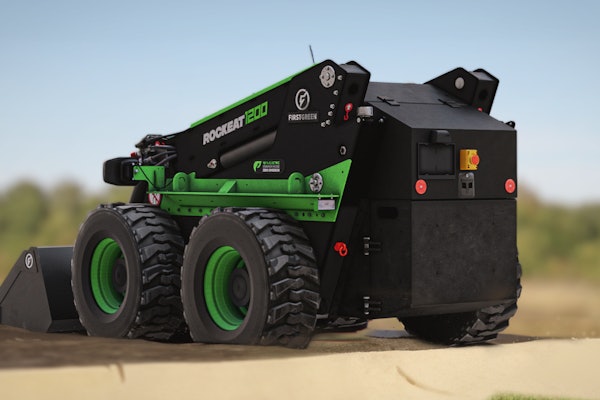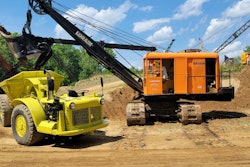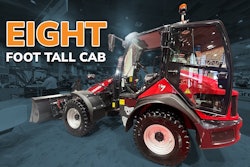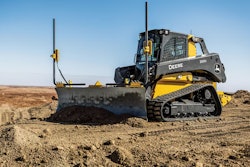In the past few years a lot of contractors have held onto their equipment longer than they usually do, preferring to maintain their older machines rather than take a financial leap of faith and buy a lot of new equipment in a shaky economy.
With the economy starting to swing back into positive territory though, sales of new machines are starting to pick up. And for the contractor who is ready to sell off the older machines in his fleet there has never before been as many channels from which to choose.
Selling this equipment is easy enough, but with a variety of places to sell it and the importance of cash flow management, disposing of your used equipment has become as much a strategic decision as buying the new iron.
Talk to your accountant first
Any successful business today has to take into account cash flow, says Mike Mundt, director of remarketing, Komatsu America International, especially small businesses. For that reason, your accountant is the first person you should go to before making any buying or selling decision. “Today if a contractor doesn’t have a good accountant who understands the construction industry he can get in a lot of trouble in a hurry,” he says.
What the accountant brings to the table is the ability to assess your cash flow and calculate the new depreciation allowances and the tax advantages or disadvantages of what you want to do.
For example, the “Jobs and Growth Tax Relief Reconciliation Act of 2003” that Congress approved this summer cuts capital gains tax rates and offers accelerated depreciation on new equipment bought between May 5, 2003 and January 1, 2005. In short, the government wants you to buy new equipment and is willing to give you an accelerated tax break to do so, but you need an accountant to assess how much benefit you stand to gain and how and when to best take advantage of the new rules.
Another financial tool your accountant may be able to help you with is to structure the sale of your used equipment as a “like-kind” exchange. In a like-kind exchange you put the money from your sale into an escrow account and as long as you use it to buy similar new equipment within a certain period of time you won’t have to pay any capital gains tax on the sale of the old equipment.
In a lot of cases, the tax laws may make it worth your while to upgrade your fleet, but every construction business is different and no one strategy works for all companies. “You have to ask yourself a lot of questions,” Mundt says. “Are you done with a job and don’t need the machine anymore? Do you need the cash? Are you going to downsize?
Once you and your accountant have figured out the strategic angles and integrated your equipment sale with the larger financial goals of your company, your next move is to decide what channel to use to sell your equipment. Here is a look at some of the most popular options.
Dealers
“I would encourage most contractors to approach their local dealer first about buying the equipment,” Mundt says. “They usually have a relationship with the dealer and most dealers have a used equipment manager.”
The dealers for most of the major OEMs have come to realize that used equipment is a big and profitable part of the industry and have stepped up their efforts to get a piece of the action. Many dealers use upgraded components and factory spec rebuilds to refurbish the used equipment they sell. And some dealers will also take your used equipment on consignment.
One of the big advantages of working with a dealer is the flexibility you have in structuring big ticket orders involving the buyback of your used equipment along with the purchase of several pieces of new equipment. If you’re buying a sizeable new fleet of big equipment you may want to structure the deal so that the equipment vendor also buys part if not all of the used equipment you’re getting rid of.
Another pitch some dealers may offer is to give you a guaranteed buyback price when the job is finished. This may come to resemble a leasing arrangement and there are usually restrictions on the number of hours, condition of the undercarriage, etc.
Live auctions
Auctions have become one of the most popular ways to sell used equipment in the last decade. Some 45 percent of the respondents to our Equipment World 2003 Auction Survey say they have sold equipment through the auction process. More than 90 percent say they attend auctions regularly and 27 percent attend more than three auctions a year.
There are several ways to structure an auction for the equipment seller, says Mundt, who previously worked in the auction business. “You can take a straight commission,” he says. “You can negotiate for a guaranteed price to the seller. Or the auction company might guarantee a minimum price and split anything over that 80/20.” Auction commissions generally run 8 to 12 percent and your ability to get guaranteed prices depends a lot on the size, age and desirability of the fleet you’re bargaining with, he adds.
Online auctions
In the last four years or so real-time auctions that take place in cyberspace have become increasingly popular. About 10 percent of the respondents to our survey say they’ve participated in online auctions. This type of auction offers a number of convenient features, perhaps most important is that you don’t have to transport the iron to an auction site – it sells from your equipment yard.
You may also get a bigger and a more geographically diverse audience in an online auction since the buyers never have to leave their offices. And you’re more likely to connect with buyers who are looking for a specialized piece of equipment or only one or two pieces of equipment.
Having well documented service records can go a long way toward helping you sell your equipment in an online auction. Since buyers can’t inspect the pieces, they rely on the seller’s maintenance documentation, including oil sample records, and sometimes the auctioneer’s inspection reports to assess the condition of the equipment.
If you’re worried about any kind of flim-flam or bogus bidding with online auctions, don’t be. The companies in this business recognized this concern early on and all have rigorous procedures in place to prevent fraudulent activity. For more about online auctions check out: www.ironplanet.com and www.rbauction.com.
Trader publications
Taking out a classified ad in a national trade journal such as Rock & Dirt can be another option for selling your used equipment.
“The auctioneers have become quite adept at getting or almost getting retail value on the machinery,” says Mike Stone, publisher of Rock & Dirt. “But then again you’re going to take about a 10 percent hit on price. You could run a half-page ad with us for around $2,000 and over a 30-day period if you had marketable items you’re probably going to sell those machines. That’s a considerable difference.”
Rock & Dirt also reaches a big audience. Published every 10 days it goes to 160,000 subscribers and has about 2,500 visitors per day to its website.
Internet bulletin boards
Another way to use the Internet to sell your equipment is to list it on an Internet used equipment bulletin board. These are websites that charge you a small fee and let you list the pieces you’re interested in selling. Interested buyers see your equipment for sale and contact you directly via e-mail to assess condition and negotiate price. One such site is www.equipmentroad.com. Here you’re charged a $100 flat fee for a month and you can list an unlimited number of pieces of equipment on the site. Contractors can also sell used equipment parts on Equipmentroad.com by listing machines they intend to part out. The site has a “want to buy” function in which all the sellers are alerted by e-mail whenever a buyer e-mails a specific request to the site. You can further research these types of sites by typing in “used heavy equipment” or “used heavy construction equipment” on any search engine such as Google.
Local newspapers
Don’t expect to find a buyer for your fleet of mining trucks in the local newspaper, but if you’re trying to sell less expensive, more popular types of equipment, newspaper classified ads can be an attractive option. What sells best in local classified ads are those types of equipment – skid steers, backhoes, telehandlers, scaffolding, hand tools, concrete finishing equipment and such – that appeal to a wide range of trades people.









